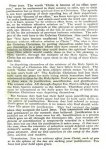Well mine harmonizes too. And our works do not save us. Justification by works actually goes against "by grace through faith".
Now I will bet you bring up James but James talks about our works being shown by our faith. James does not tell us our works save us in any way. If we have faith in God it will be shown by our faith.
The only way you can make salvation or justification by our "good works" harmonize is by reading Scripture with a preconceived idea that our "works" can save us.
With the Ephesians passage you justified your thinking by saying Paul was talking about the law. Law or no law I'll say again...Works is works no matter how you justify it.
And I'll bring up this point also...how are we sanctified? Only the Holy Spirit working in our lives can sanctify us. Our works don't sanctify us either.
Now I will bet you bring up James but James talks about our works being shown by our faith. James does not tell us our works save us in any way. If we have faith in God it will be shown by our faith.
The only way you can make salvation or justification by our "good works" harmonize is by reading Scripture with a preconceived idea that our "works" can save us.
With the Ephesians passage you justified your thinking by saying Paul was talking about the law. Law or no law I'll say again...Works is works no matter how you justify it.
And I'll bring up this point also...how are we sanctified? Only the Holy Spirit working in our lives can sanctify us. Our works don't sanctify us either.
Your position works are works, stands against the teaching of Paul and Jesus. I already posted Rom 2 where Paul said those who continue in well doing are seeking eternal life. Jesus told the disciples to "strive" to enter the narrow gate.
You mentioned James, he is not saying faith produces works. He said, faith without works is dead and asks rhetorically. can that save? If faith without works is dead and cannot save, then it must be that works must be present before that faith is alive and able to save, thus works precede salvation. James say, I will show you my faith out of my works. If his faith comes out of his works then the works must exist before the faith can come out of them.

